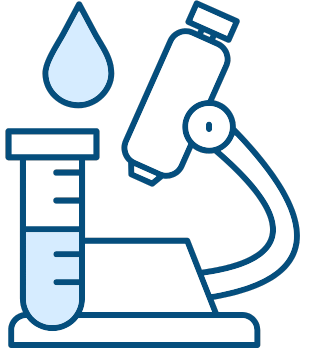Colds during pregnancy can be a worry. During this period, the health of the mother-to-be and the baby becomes more susceptible to any health problems. Although colds are usually completely harmless, during pregnancy you need to be extra careful and take the right treatment measures to keep your pregnancy safe.
In this article, together with the doctors at Drops Clinic, we will discuss what treatments and preventive measures are appropriate during a cold to ensure a safe pregnancy and the well-being of both mother and baby. We will also look at when it is necessary to seek medical attention.
When is it necessary to see a doctor for a cold during pregnancy?
Colds during pregnancy should not usually be an additional concern. However, in some cases, the consequences of a cold during pregnancy can affect the health of the mother-to-be and her baby. It is therefore essential to seek medical advice if:
- The fever persists for a few days, or you notice that it becomes difficult to breathe. This may be a sign of a more serious condition that requires immediate medical advice.
- Your temperature rises above 37.5-38⁰C. Consult your doctor as this may be a sign of infection.
- Your temperature rises above 37.5-38⁰C. Consult your doctor as this may be a sign of infection.
- I caught a cold during early pregnancy. It can have serious consequences for the baby, so you need to be extra careful and take care of your health.
Even if the cold is mild, a doctor’s consultation can still be useful. During pregnancy, a woman’s immunity can weaken, so even a simple cold can have consequences.
If you experience colds or other health problems during pregnancy, do not hesitate to contact your family doctor. Family medicine is the first step in dealing with health problems. “The Drops Clinic family clinic specialists will listen to your complaints and concerns, carry out the necessary tests and prescribe a treatment that will not put your future baby at risk. For more information, click here.
How are colds treated during pregnancy?
Colds during pregnancy can be uncomfortable, but usually do not pose any serious risks if proper treatment is taken in time. There are several safe ways to relieve cold symptoms during pregnancy:
- Drink plenty of fluids. This will help prevent dehydration and increase the immune system’s ability to fight infection.
- If you have a stuffy nose, try steam inhalation. Add a few drops of eucalyptus oil to a bowl of hot water and breathe in the rising steam for a while. A hot shower can also help. If natural remedies don’t help, you can consult your doctor or pharmacist about using a nasal spray.
- If you have a sore throat, drink teas or hot water with honey and lemon, or use mint lollipops. You can also use cough medicines or potions, but only if your doctor has given you permission.
- If you have a headache or a fever, you can take paracetamol. However, this should be done with caution, following the instructions for use carefully. It is best to consult your doctor about the dose and timing. If the temperature is very high and you feel worried about your condition, it is better to consult your doctor.
It is important to remember to be cautious with medicines during pregnancy, as some medicines you have taken in the past may no longer be suitable. Therefore, always check with your doctor or pharmacist before taking any medicines. Also try to get as much rest as possible, drink plenty of water and take vitamin C to help your body fight the infection.
When you have a cold during pregnancy, it is important to choose safe and reliable treatment methods. If you are looking for ways to strengthen your body and improve your general well-being, drips containing specific vitamins and medications with anti-inflammatory properties can be considered with the approval of your doctor. Contact the Drops Clinic family clinic specialists. After listening to your complaints and preferences, and based on the detailed tests carried out, our doctors will select the most appropriate course of infusions for your condition. For more information, click here.
How can I protect myself against colds during pregnancy?
The best way to protect yourself from the risk factors for pregnancy caused by colds is to stay away from getting sick. Although it is not possible to be completely protected against every cold virus, there are several ways to strengthen your immune system during pregnancy:
- Get enough rest. Fatigue and daily stress are a disease’s best friend.
- Take part in sports. Exercise or even a light walk outdoors has been shown to improve blood circulation and strengthen the body’s natural defences. However, it is important to note that not all forms of sport are suitable during pregnancy.
- Follow a balanced diet. Natural vitamins are more easily absorbed by the body, so eat healthy foods enriched with beneficial elements – as much fruit, vegetables and whole-grain products as possible.
- Choose clothing that is appropriate for the season. Keep your feet, hands and head warm during the cold and flu season. If your extremities get cold, you are much more likely to catch a cold.
- Stay at home more often. Avoid mass gatherings, especially when viruses are rampant. And if you have to be in a crowded place (for example, a medical facility), wear a protective medical mask. These will help protect you from viruses and bacteria in the environment.
- Follow proper hygiene measures. This is one of the surest ways to protect yourself against infectious diseases, including the common cold. Wash your hands frequently with warm water and soap, especially after returning from the outdoors and before meals.
- Drink plenty of fluids. Water, teas and juices are good. Avoid drinks with high caffeine and sugar content.
What treatments should a pregnant woman avoid when she has a cold?
Often, the medicines we are used to taking when we have a cold are no longer suitable during pregnancy. Pregnant women should avoid certain treatments and not abuse medicines without a doctor’s permission, as many of them can have side effects and adversely affect the development of the foetus.
Most medicines, even homeopathic medicines, have side effects of one kind or another and should not be taken without consulting a doctor. It is especially important to be careful during the first trimester, when the baby’s most important organs are developing.
Popular powdered cold remedies should also be completely avoided. They often contain very high doses of paracetamol and other fever-reducing substances, which can harm the pregnancy. Antibiotics are not recommended unless prescribed by a doctor.
However, it is important to remember that it is best to consult your doctor before taking any medication and to monitor your condition regularly.
Colds during pregnancy are usually not dangerous, but during this period, the health of the mother-to-be and the baby becomes more sensitive. It is therefore important to take precautions and take the right treatment measures to ensure a safe pregnancy. If you catch a cold, Drops Clinic’s expert team of doctors is ready to help. Our doctors will examine you, prescribe the right course of treatment and help you get back on your feet quickly.
Frequently asked questions:
Can I drink all types of tea with a cold during pregnancy?
During pregnancy, the tea can relieve cold symptoms. Most herbal teas are safe for pregnant women, but it is always better to consult a doctor or specialist, especially if you have any specific health problems or are taking other medications.
Herbal teas made from natural herbs and fruits such as ginger, lemon, mint or chamomile are often considered safe and can be particularly helpful for colds. Ginger or mint tea can help with nasal congestion or sore throats.
Some teas may contain substances that have adverse effects on pregnancy. Therefore, it is better to check with your doctor or pharmacist before drinking any herbal tea during pregnancy.
It is also important to avoid teas with a high caffeine content, such as black and green teas. Too much caffeine can have a negative effect on the pregnancy and the baby. In any case, it is best to remain cautious and consult a health professional.
Can a cold during pregnancy harm the foetus?
In most cases, the consequences of a cold during pregnancy are not directly dangerous for the fetus, but can cause discomfort. The most important thing is to avoid taking too strong medicines and to consult your doctor for safe treatments so that they do not harm the foetus.
Symptoms of colds such as stuffy nose, cough and fever can be unpleasant for the mother-to-be but usually do not cause serious complications. It is important to drink plenty of fluids, take care of your immune system and follow preventive measures to avoid colds.
If a cold causes severe discomfort or if you have doubts about its effect on pregnancy, it is best to consult your doctor.
Will antibiotics harm the pregnancy?
During pregnancy, the use of some types of antibiotics may pose risks to the foetus. It is therefore very important that the doctor you see is aware of your pregnancy. This is the only way to determine the most appropriate and safest course of treatment if antibiotics become necessary.
Under no circumstances should you choose antibiotics on your own to avoid possible risks to the baby.




